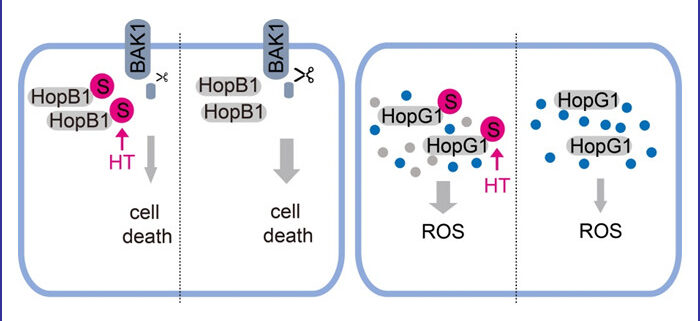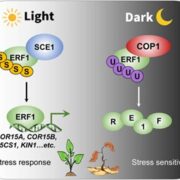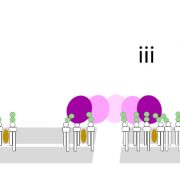Hot and SUMOylated: Heat-induced SUMOylation controls effectors in plant cells
Li et al. examine heat-induced SUMOylation of bacteria effectors in Arabidopsis. (Plant Cell. 2024)
By Wenliang Li and Jianbin Lai (South China Normal University)
https://doi.org/10.1093/plcell/koae049
Background: Bacterial pathogens deliver effectors into plant cells to interfere with host immunity and these effectors are targeted by host cells. Environmental factors affect this interaction between bacteria and plants. SUMOylation is an important protein modification that covalently attaches small ubiquitin-related modifier (SUMO) proteins on substrates. SUMOylation increases dramatically in response to high temperatures, but its function in direct targeting of bacteria effectors is unclear in plant cells. Thus, it is valuable to study the mechanism of how heat-induced SUMOylation contributes to the interplay between plant cells and pathogen effectors under high temperatures.
Question: Are bacteria effectors SUMOylated in plant cells and how does this modification affect the interaction between bacteria and plant cells at normal and high temperatures? We tested this using Pseudomonas syringae pv. tomato (Pst) DC3000 and Arabidopsis thaliana.
Findings: Here we found that at least 16 effectors from Pst DC3000 are SUMOylation substrates in Arabidopsis thaliana. Mutation of SUMOylation sites on the effectors HopB1 and HopG1 showed that SUMOylation has different effects on the two different effectors. HopB1 function induces plant cell death by decreasing the stability of an Arabidopsis receptor kinase and SUMOylation decreased HopB1 function. HopG1 inhibits mitochondrial activity and jasmonic acid signaling in plant cells and, in contrast to HopB1, SUMOylation is essential for HopG1 function. However, heat treatment increases the SUMOylation of both HopB1 and HopG1.
Next steps: In future studies, it will be interesting to investigate the mechanisms by which SUMOylation regulates effectors in different species. The work will improve our understanding of the pathogen-plant interplay in response to environmental conditions and help us improve resistance to biotic and abiotic stresses in crops.
Reference:
Wenliang Li, Wen Liu, Zewei Xu, Chengluo Zhu, Danlu Han, Jianwei Liao, Kun Li, Xiaoyan Tang, Qi Xie, Chengwei Yang, Jianbin Lai. (2024). Heat-induced SUMOylation affects bacterial effectors differently in plant cells. https://doi.org/10.1093/plcell/koae049










